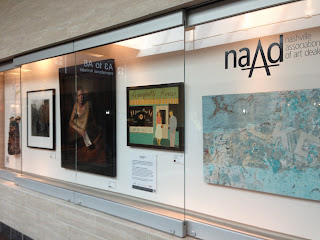Hotel & Air
This year's residency was held in Nashville, TN.Hotel: Embassy Suites Nashville - Airport
| Rate Information: | ||||||||||||||||||||||||||||||||||||
| ||||||||||||||||||||||||||||||||||||
Pros
A decent price for the size of the room. Each room has a separate bedroom and living room so even two people can share the suite without many issues. The rooms all include a microwave and mini fridge as well. Also, if you forget something, like a razor or toothpaste, they provide that to you for free when you ask. It is also right accross the school but take the shuttle as it is too dangerous to walk. The shuttle runs often and will even take people anywhere within a 3 mile radius.
Cons
The downside to the hotel is that there were several reports from my classmates about the cleanliness and service of the hotel. Although I did not experience many of the things they did, I did have my own experiences, such as not receiving my free wifi access card, the front desk does not know anything about promo/discount codes when I called them, and their room service forgot my food so when I called to remind them about it, it was cold. According to some of my classmates, they also have little understanding of the emergency services. I mention the emergency services because one of my classmate nearly got a concussion from the oddly positioned soap holder in the shower. For myself, this was not an issue as I am short, but for my peer, it was directly at his eye level and he is the average height for a grown man.
Note: Food at the school was awful this year and there were some perks at the hotel I did not initially know about.
Seven tips to take advantage of at this hotel:
- Wake up early and eat breakfast at the restaurant in the hotel. It's free and made to order. Bring tip money for the cook.
- If you want to order food at the hotel, go directly to the restaurant, bar, or call and pick it up yourself. On my first night I called them, they didn't deliver my food until an hour after I called to remind them about it, and it came cold.
- Renting a car is not necessary as the shuttle will take you around the area.
- Consider buying some food/microwavable entrees if you want to save some money at Walgreens/Kmart which the shuttle can drive you to.
- Alternatively eat at a restaurant within the 3 mile radius that the shuttle is willing to drive you to. There are no sidewalks. Also keep in mind that you need to schedule the trip and there are few options. Ask the driver or hotel staff for suggestions or a tour of the area.
- Free Happy Hour occurs every night from 5pm to 7pm. They have a limited selection but it is free.
- If you know anyone from your prior residency, try to room with them, if you are comfortable. Since the suites are two rooms, it will save some money.
Hotel:
(Calamari would have been good hot. Luckily there is a microwave in every room.)
Chicken with avocado and cheese (good), side of chips (yuck)
Grilled Salmon Salad (very good)
Food from the school:
Airport:
Airline: From EWR to BNA, and back
FARE INFORMATION |
|
| ||||||||||||||||||||||||||||||||||||||
| The airfare you paid on this itinerary totals: 288.37 USD | |||||||||||||||||||||||||||||||||||||||
| The taxes, fees, and surcharges paid total: 41.73 USD | |||||||||||||||||||||||||||||||||||||||
DOC/721R DOCTORAL SEMINAR I
Start Date: 02/01/2013
End Date: 02/03/2013
PrintCOURSE DESCRIPTION
This 3-day residency course begins the formal development of the learner’s dissertation. This development will be ongoing throughout the curriculum and result in the dissertation’s submission at the end of the program. Topics in the course include problem statements, research questions, hypotheses and testing, samples and populations, the intended impact of the study on the profession and society. The outcome of this course is a concept paper that articulates a specific goal and plan that will evolve into the learner’s dissertation. This course will incorporate learners from various doctoral programs/disciplines.
Course Competencies
Course Competencies
- Develop a concept paper reflecting a feasible, meaningful, and aligned dissertation study that addresses a gap in the literature and would be important to leaders in your specific field of study.
- Evaluate human subjects’ requirements and ethical issues in conducting research with human subjects as it relates to your proposed study.
- Demonstrate an understanding of the proposal submission, review, and approval process.
- Demonstrate an understanding of the criteria and process of choosing a mentor and dissertation committee.
- Develop an action plan for expanding the concept paper to a dissertation proposal.
Experiences
Experiences from this course was very good. Unfortunately I can't say the same for others. If you have the option, I highly recommend Professor Moreland because he makes the lessons clear and fun as well as he has a lot of patience in what could be a stressful environment.
Residency Support
Orion.Perez@phoenix.edu
Tech Support
877-832-4867
DOC721R/Day One Residency Notes
Agenda & Advice
- Breakfast, lunch, dinner at the school is in rm. 103
- Class is in 250
- Instructor: JEREMY MORELAND
Professor gives intro... - Support and another faculty speech
- Similar traits from students intro: do I want to go on with getting my doctorate? Is my topic too broad?
- Understanding who your stakeholders are
- Growth
- Idea: provide clarity for others so that it is replicable
- Critical analysis is a two-way street
- Check in with community college
Ask Questions
Our Dissertation
- Selection of topic
- how to narrow down a broad topic/addressing gap
- selecting population
- using social media when obtaining a population sample
- Innovation of topic/stale/new
- retaining information
- is there a gap in all research
- How to get into the research project
- title formulation
- methodology
- sampling
Our Chair/CMTE
- feel that my study will suffer w/o a mentor
- what's the criteria for choosing a mentor/chair
- mentor/chair qualifications
- is there a chair list?
- who is the expert in phoenix on my topic? Can I consult him/her to help develop my topic?
- Will we be able to meet prospective members before selection.
Our Program
- Please clarify remaining classes, what to expect, what we will learn
- are there opportunities to accelerate the process?
- Several classes have same number or variation of, do we have to take all of them for completion?
Misc.
- When is the new research or is there ever such a thing new?
- How does one take on a study that does not have a lot of findings?
Lecture Area
From the Professor
Misc. Notes
- Experts in the field go to research conferences
- APA second section about clarity and content
- "really, really important"
- reference specific events
- be careful of anamorphisms
- be careful of words or terms with multiple meanings
- consider readers with multiple/different languages
- deconstruction/critical analysis
- don't limit yourself to one resource
- using edited literature is okay
- Sampling: exceptionally representative, quantitative
- Case study: exceptionally special, qualitative
- Convenience sample: available data/people
- After third residency, we can submit our dissertation proposal
- Ethics, permissions, confidentiality,
- Be careful about exclusions of names/companies/organizations and confidentiality
- Try to get samples without bias/the researcher's perceptions/expectations are not completely revealed
The M.E.A.T. Method
M - methodological
- Creswell and Newman
- SAGE research methods
E - exploratory, narrative, observation, empirical, extending research
- SPSS - quantitative data analysis software
- nvivo - qualitative data analysis software
A - applied contribution, application, applied learning and experience
T - modest contribution, theory, theoretical relevance, "all good theories die"
SAS Website
- Faculty approved for SAS
- Area of expertise
- Ask a question on Phoenix Connect based on your dissertation proposal to find a chair/mentor
- Search for a mentor (https://ecampus.phoenix.edu/SASWeb/LearnerFolders/LearnerUIPages/MentorSearch.aspx)
Other
Library Resources
Misc. Notes
- A folder on the library per user
- Overview of search engine used for Phoenix library with the use of Boolean flags
Evaluating Search Results
- Scope: do you need an overview of your topic or do you need specific information on your topic?
- Currency: How current is the information? Does it cover the time period that you are researching?
- Authority: Who if the author and what are their credentials?
- Audience: Who is your audience (how much detailed information do you need)?
Resources
- Google Scholar is now accessible within Phoenix's library (http://tinyurl.com/go2googlescholar)
EBSCOhost & ProQuest Accounts
- You can try and go to the official website to find the document and see if it's there.
Idea: Keep a spreadsheet on databases
- Journal Name, Full-test coverage (year to year), Database found
Assignments
- Reflection journal template
- Things you want to make sure you want to get done tomorrow
- Any questions, to do list, etc.
Future Agenda
- Committee collection
- Micro presentation
- 1 on 1
DOC721R/Day Two Residency Notes
Project: Problem Statement Presentation
- Post problem statement from your concept paper
- Student: sites in front of the class in the "hot seat" and says nothing while classmates analyze the problem statement and guess what the paper will be about.
- Classmates: is this problem statement an observation, survey, case study, etc.? Where is this problem statement going? How will it be examined?
Alex (me) focus points to improve on:
- problem with clarity
- what is the problem specifically
- need to discuss the technology
- he/she pronouns
- sentence structure
- condense structure
- borrow a method
Anne
- Information is lacking
- problem statement appears to be an ethics issue but unclear
- survey-based?
- not sure where the information is going
John
- problem statement clear
- needs elaboration with adoption of technology
- borrow a method
- be careful with the word "will"
Art
- problem: project performance?
- too broad
- topic is actually about whether funds should go into projects
Heddie
- general area identified
- specific evidence on why the pharmaceutical and who
- correlation and sampling
- avoid long sentences
- clarity with "incivility"
Chris
- specific problem: clear and will explore why african american obesity occurs more than in their white counterparts
- comparative study, ethnography, behavioral
- choice of words
- specify time
Lonnie
- unclear general problem statement
- no citations, resources, supportive data to the specific problem
- sounds like there is a lot going on, "busy"
- run on sentences, fragments
Telicia
- geographical information
- disparity of why african americans are being targeted for lending market
- descriptive study, qualitative study
- write out numbers if over double digits, some grammatical errors
Nadine
- statement and variables needs clarity
- who is doing the reporting and why the concern
- qualitative study
- what are the possibilities
Juan
- the assumption is "how it is being spread?" but it's not explicitly mentioned
- want to know transmission, but is not explicit
- what preventative measure
- what paths should be used, borrow a method
- what are researchers doing to study health changes in the population
- supportive data
- run-on sentences
Remi
- geographic information
- website information: benefits/negative affects
- unsure about method, borrow a method, what are others doing?
Claudetth
- general problem: Racial and ethnic disparities in the quality of health care
- clarity with specific area
- what racial and ethnic groups are affected
- borrow a method
Michelet
- spread of the HIV infection in South Africa
- why is it spreading?
- ethnographic survey
Lecture Notes
- expert faculty, hard to discuss the basics
- general problem, specific problem (what is missing?), method, style
Lecture
Method
Quantitative: correlational (comparative between variables), archival (collection of measurements), content or text analysis (goal is to study text and identify themes, detect latent content), ethnography (study of culture), and phenomenology (notes from others for insight), data saturation.
For each method, there should be a research question for it.
Saturday Plan
- method and analysis
- research questions
- dissertation review planning
- check-ins start
- timelines and committees
- pursuing a chair and what will happen
- committee will give advice on what to change.
- concept paper revision
- reflective journaling
Team Project
- published dissertation review (team of 3-4)
- dissertations we like
- using quality criteria for concept paper
- 5-10 minutes
- what is strong, what is less strong
Sunday Plan
- Dissertation Review (group)
- Dissertation Plan (turn in)
- Individual micro-presentations
- updates
- research questions
- 12:30-1PM: APA
Homework due
- revised concept paper
- reflection
DOC721R/Day Three Residency Notes
- gain insight from other sources
- critical thinking from other dissertations (dissertation review)
- relevant, important, interesting
- am I reaching my audience?
- what can I change about my dissertation?
APA Lecture
- General APA styles (headings, word usage and comprehension, etc.)
- Flexibility (Limit footnotes)
- Software (River point and end note)
- Discourse community (talk in code)
- Appropriate, persuasive, interesting
- Method: Sampling procedure, Sample size, power, precision, measure and covariates, research design, experimental manipulations, interventions
- Almost significant means its not significant
- Results
- Discussion
- Grammar software: grammarly, whitesmoke
- Describe at appropriate level of specificity
- Be sensitive to labels
- Avoid masculine and pronouns
- Plagiarism
Conflicting modification on February 3, 2013, 2:13:57 PM:
- gain insight from other sources
- critical thinking from other dissertations (dissertation review)
- relevant, important, interesting
- am I reaching my audience?
- what can I change about my dissertation?
APA Lecture
- General APA styles (headings, word usage and comprehension, etc.)
- Flexibility (Limit footnotes)
- Software (River point and end note)
- Discourse community (talk in code)
- Appropriate, persuasive, interesting
- Method: Sampling procedure, Sample size, power, precision, measure and covariates, research design, experimental manipulations, interventions
- Almost significant means its not significant
- Results
- Discussion
- Grammar software: grammarly, whitesmoke
- Describe at appropriate level of specificity
- Be sensitive to labels
- Avoid masculine and pronouns
- Plagiarism
To Do List
- borrow a method
- peer review as a model
Presentation Project
- how are they going to get the data?
Final Grade, Notes from Professor, and Links
Alex,
It was a pleasure having class with you. Some final thoughts on your core materials, as revised by course's end:
You have done a good job in continuing to build and refine your overall problem formulation. Work to grow your familiarity with existing research in this environment to not only a deeper understanding of the empirical results as they pertain to your study, but also a strong understanding of the design and data collection procedures used by these colleagues such that you can design an appropriately similar effort. Then, as that design is refined, ensure that your research questions aren't in response to the general problem, but rather connect to the method you pursue (and, are informed directly by your data analysis). For example, a deeper understanding of the instrumentation engaged by researchers in this area regarding affirmative behaviors will inform how your state (and answer) your research questions.
Other items: I would like to recommend the following articles (mostly from Educational Researcher) that I think you'll find relevant to your own work and for which I am sending url's to class members (simply copy and paste each into your browser's address bar).
The first should be valuable as you evaluate your own literature review (in and after DOC/722): http://www.aera.net/uploadedFiles/Publications/Journals/Educational_Researcher/3406/Boote.pdf
The second article serves as a response to the first, particularly, as a critique: http://www.aera.net/uploadedFiles/Publications/Journals/Educational_Researcher/3509/10324-05_Maxwell_p28-31.pdf
And, this one serves as a response from the original authors: http://www.aera.net/uploadedFiles/Publications/Journals/Educational_Researcher/3509/10324-06_Boote_p32-35.pdf
The following article treats the evaluation of dissertations more broadly, but should be useful as you explore literature of interest and as you work to self evaluate your own dissertation work:http://www.aaup.org/AAUP/pubsres/academe/2005/ND/Feat/lovi.htm
Also, consider the following article as context for your RES/722 class: http://www.aera.net/uploadedFiles/Publications/Journals/Educational_Researcher/3509/10324-02_Yanchar_p3-12.pdf
One more: be sure to review the "resources for authors" at the following link: http://www.aera.net/publications/?id=308
Thank you for your contributions to our course. We had a very productive weekend! Please let me know if you have any questions! JM
Grading CriteriaPossible / Earned
Day One
|
|||
Individual Assignment: Concept Paper Development
|
15
|
15
|
|
Individual Assignment: Updating C.P. Development
|
10
|
10
|
|
Day Two
|
|||
Individual Assignment: Drafting the Concept Paper
|
10
|
10
|
|
Day Three
|
|||
Learning Team Assignment: Dissertation Review
|
5
|
5
|
|
Individual Assignment: Final Concept Paper
|
40
|
37
|
|
Individual Assignment: Dissertation project plan
|
5
|
5
|
|
All Days
|
|||
Participation and Reflective Journaling
|
15
|
15
|
|
Point Total
|
100
|
97
|




















